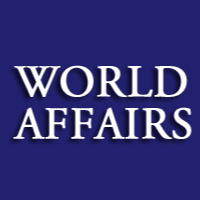In Nuke Talks with Iran, Learn from North Korea

“We have to test diplomacy,” President Obama said in the Oval Office on Monday, with Israeli Prime Minister Benjamin Netanyahu at his side. The American leader was hopeful that the historic 17-minute phone call with Hassan Rouhani, his Iranian counterpart, on Friday signaled the Islamic Republic’s intent to come to terms with the international community over its controversial nuclear program.
Netanyahu, in his Tuesday speech to the UN General Assembly, delivered a direct attack on the Islamic Republic, which he accused of trying to build an atomic arsenal. The Israeli leader also issued a warning that diplomatic efforts might worsen the situation, and in this regard talked about the world’s less-than-impressive efforts to stop North Korea.
North Korea shows what can go wrong with diplomacy. Kim Il Sung, the first leader of the Democratic People’s Republic of Korea, started trying to weaponize the atom in earnest in the late 1970s. The regime detonated its first device in October 2006, a quarter century later. During that period, there were many opportunities to stop the nuclear program, but at most every turn the North, one of the weakest states on earth, was able to best the United States, the most powerful nation in history, and its many allies in the international community.
How did that happen? It almost goes without saying that successive administrations made every possible mistake. Perhaps the principal one is that Washington failed to maintain a consistent policy. Its mish-mash approach ensured that the effect of coercive tactics—the only ones with any chance of succeeding against a militant regime determined to possess nukes—were undermined by agreements. Those deals gave the ruling Kim family the space to continue its nuclear program at crucial moments.
As a statement from Netanyahu’s office declares, “a bad agreement is worse than no agreement at all.” The Agreed Framework, the landmark 1994 deal, highlights much of what was and remains wrong with bargains America makes with weaponizing rogues in general and Pyongyang in particular. That year, Bill Clinton had skillfully managed to orchestrate one of those rare moments of unity when most of the world—including China—agreed to impose tougher measures on North Korea for its renegade nuclear program.
Pyongyang was livid and was threatening war, but Clinton was not blinking. But just as the international community was within days of finally taking decisive action against the Kim regime, in walked an itinerant peacemaker. Jimmy Carter, on his own initiative, flew to Pyongyang in June to broker a deal with the ailing Kim Il Sung. The proposed arrangement Carter devised, unfortunately, dissolved the global unity for sanctions that could have convinced Kim to come to terms with Washington.
We now know that the Kim regime was on the ropes at that time , and it was even more fragile when the dictator died of a heart attack in July. Yet the signing of the Carter deal in October, which became known as the Agreed Framework, rescued the North at a critical moment. It provided an economic lifeline and, more importantly, signaled to the Pyongyang elite America’s acceptance of Kim family rule when succession to Kim’s son, Kim Jong Il, was in doubt.
The US and the world arrived at many agreements with the Kims—father, son, and grandson—about their nuclear program. Every one of the bargains solved the moment’s crisis yet none of them provided a lasting solution. Each of them could be seen as sensible in its time yet damaging in the long run , postponing the resolution of critical issues to a future when North Korea would be stronger and better-armed. If there is one thing that analysts agree, it is that time now favors a North Korea that is expanding its arsenal as the years pass.
So as Netanyahu tells us, it may not be a good idea to sign a deal with an Iran facing severe difficulties. Too often we see agreements as progress when they prove to be injurious to the interests of the world by buying precious time for proliferators. The road to today’s nuked-up North Korea is, unfortunately, littered with well-intentioned but ill-advised treaties, accords, and understandings.
Will President Obama sign another one?
OG Image:
Gordon G. Chang's Blog
- Gordon G. Chang's profile
- 52 followers



